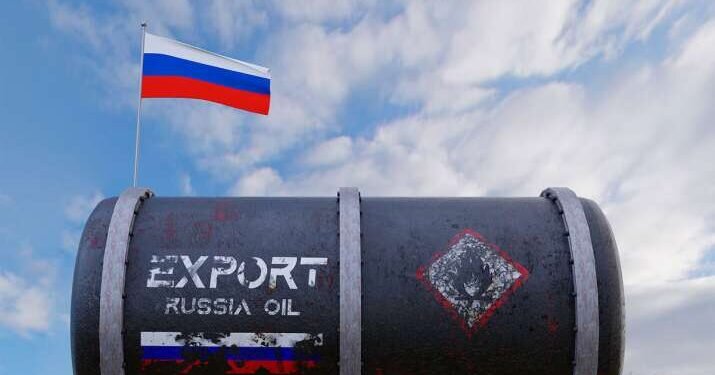Under the price cap mechanism, members of the alliance will not provide insurance, finance and other services for shipping Russian crude by sea unless buyers purchase oil at or below 60 dollars a barrel. This mechanism aims to prevent Russia’s billions of profits from oil exports, and therefore it was immediately criticized by Moscow. At the same time, the European Union puts its energy security at risk by creating a price ceiling.
However, there are also doubts whether the maximum price of 60 dollars per barrel can really put pressure on Russia. In fact, this action will hit Russia, but this plan is certainly not difficult and impossible to avoid. The cost of Russian oil production is estimated to be around 20 dollars per barrel, and Russia can even lower this cost. Russia will also try to circumvent the price ceiling with new partners. For example, Chinese shipping and insurance companies could become more involved in the Russian oil business and take the place of Europeans.
East Asian countries and India can continue to buy Russian oil at a price outside the set ceiling and pay the excess price difference in other financial transactions of these two countries, especially in the purchase of military weapons from Russia; This overpayment in the financial documents related to the purchase of military weapons will be out of the observation of the western regulatory institutions. Basically, governments that have financial and political independence (mostly non-western countries) can continue buying oil and other items that have been embargoed by the West in the framework of bilateral trade relations with Russia and outside the control of the west.
Meanwhile, major oil exporting countries also agreed to maintain their current production levels, and there is a possibility of production cuts. This has made it impossible for the price of oil to decrease.
Therefore, these changes in the first place can have negative impacts on the price of gasoline and oil for western consumers. However, this is difficult to predict at this stage and highly depends on Russia’s reaction to the price cap. But if Russia decides to completely stop exporting oil under the new terms, global market prices could rise worldwide. But the hidden policy of setting the ceiling is probably the strategy of creating alliances and new allies outside the 7 countries and the European Union, so that it creates a new front against Russia and puts more countries against Russia.
The continuation of Europe’s financial and military support for the war in Ukraine, which has eroded the power of European statesmen and popular support, has especially put Europe under more pressure. The continuation of this process will somehow lead to discouragement with economic pressures, the recent example of which can be seen in many demonstrations in European countries.
It should be noted that Russia also has a superior position in OPEC Plus, and this position allows Moscow to change the amount of oil and gas exports. Therefore, the possibility of other OPEC members joining Russia’s opinions and reducing or keeping the production level is very likely. Therefore, the members of the Group of 7 and the European Union will ultimately suffer more from this action than Russia, and in a way, in the most optimistic scenario, they will enter the lose-lose game. Determining the ceiling also shows the dual positions of the Arabs in the field of free trade. The countries proposing this idea, in addition to blatantly and recklessly violating the basic principles of free economy and international trade, seek to weaken the income of oil exporting countries.










0 Comments